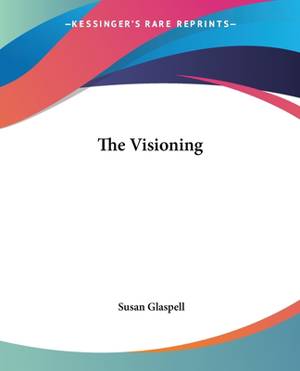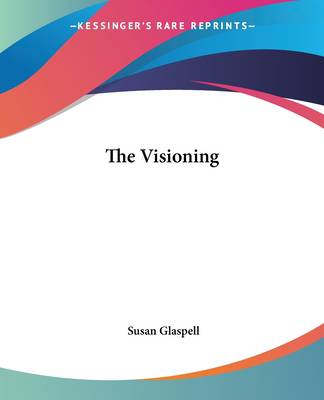
- Afhalen na 1 uur in een winkel met voorraad
- Gratis thuislevering in België vanaf € 30
- Ruim aanbod met 7 miljoen producten
- Afhalen na 1 uur in een winkel met voorraad
- Gratis thuislevering in België vanaf € 30
- Ruim aanbod met 7 miljoen producten
Zoeken
Omschrijving
The Visioning is a novel written by Susan Glaspell, published in 1911. The story follows the life of a young woman named Leslie, who is raised in a strict religious household. Leslie is torn between her desire for freedom and her family's expectations of her. She eventually marries a man named Dick, who shares her love for adventure and exploration.However, their marriage is not without its challenges. Leslie struggles to balance her desire for adventure with her responsibilities as a wife and mother. Meanwhile, Dick becomes increasingly involved in his work as an archaeologist, leaving Leslie to care for their children alone.As Leslie navigates the complexities of marriage and motherhood, she begins to experience strange visions that seem to offer her a glimpse into a different way of life. These visions challenge her beliefs and force her to question the choices she has made.The Visioning is a powerful exploration of the conflict between tradition and modernity, and the struggle to find meaning and purpose in life. Glaspell's vivid prose and rich characterizations make this a timeless and thought-provoking novel.She had come to think of Ann, not as a hard-and-fast, all-finished product, but as something fluid, certainly plastic. It was as if anything could be poured into Ann, making her. A dream could be woven round her, and Ann could grow into that dream. That was a new fancy to Kate; she had always thought of people more as made than as constantly in the making. It opened up long paths of wondering. To all sides those paths were opening in those days--it was that that made them such eventful days. Down this path strayed the fancy how much people were made by the things which surrounded them--the things expected of them.This scarce antiquarian book is a facsimile reprint of the old original and may contain some imperfections such as library marks and notations. Because we believe this work is culturally important, we have made it available as part of our commitment for protecting, preserving, and promoting the world's literature in affordable, high quality, modern editions, that are true to their original work.
Specificaties
Betrokkenen
- Auteur(s):
- Uitgeverij:
Inhoud
- Aantal bladzijden:
- 336
- Taal:
- Engels
Eigenschappen
- Productcode (EAN):
- 9781419186875
- Verschijningsdatum:
- 17/06/2004
- Uitvoering:
- Paperback
- Formaat:
- Trade paperback (VS)
- Afmetingen:
- 193 mm x 234 mm
- Gewicht:
- 585 g

Alleen bij Standaard Boekhandel
+ 89 punten op je klantenkaart van Standaard Boekhandel
Beoordelingen
We publiceren alleen reviews die voldoen aan de voorwaarden voor reviews. Bekijk onze voorwaarden voor reviews.











